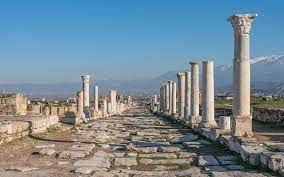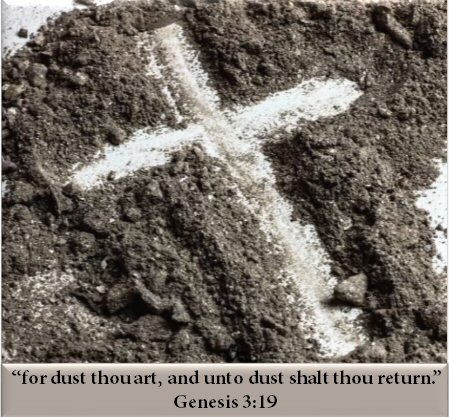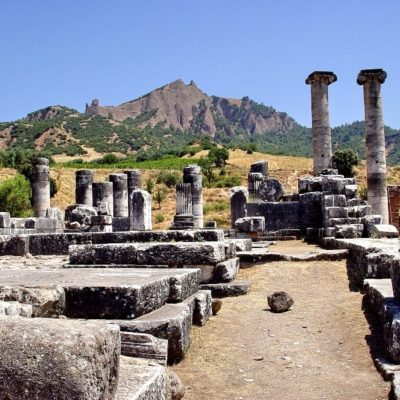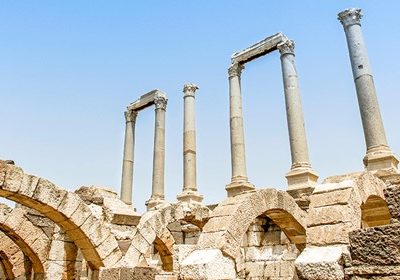The church of the Laodiceans

Reveals who Jesus is:
14 “And unto the angel of the church of the Laodiceans write; These things saith the Amen, the faithful and true witness, the beginning of the creation of God;” (Revelation 3:14).
Laodicean, is an inhabitant of Laodicea. (Strong. 2001. # 2994). Laodicea was located about forty-three miles to the southeast of Philadelphia, eleven miles west of Colosse and six miles south of Hierapolis (Colossians 4:13) in the Lycus valley. Hierapolis is a city of Phrygia, situated above the junction of the rivers Lycus and Maeander, near Colosse and Laodicea). (Strong. 2001. # 2404). Laodicea was an opening to Ephesus, due east about a hundred miles, which was the entrance to Syria. It was known as Diospolis, the city of Zeus, and Rhoas. The Romans entered the area in 133 B.C. and made the city a judicial and administrative center. They built a road system from east to west and north to south. It was at the crossroads the city of Laodicea became a leading commercial center, and gained wealth and influence. Its wool industry flourished through the production and export of black wool, the manufacturing of common and costly garments, and the invention of an effective eye salve. It had a flourishing medical school that specialized in ear and eye care and had developed an ointment for treating inflamed eyes. Because of this ointment, the school became world famous.
A devastating earthquake struck Laodicea in A.D. 17, and, like other cities in the province of Asia, it received financial aid from the Roman government. There was a second earthquake in A.D. 60 once again the Roman government offered financial aid to rebuild the city. The city fathers sent the government a reply telling Rome they could make it on their own because they had ample resources for the reconstruction. (Kistemaker. 2001. Pg. 146).
The angel of the church of the Laodiceans was told to write from; “These things say the Amen, the faithful and true witness, the beginning of the creation of God;” “The Amen” metaph. means Faithful. The word “amen” is a most remarkable word. It was transliterated directly from the Hebrew into the Greek of the New Testament, then into Latin and into English and many other languages, so that it is practically a universal word. It has been called the best known word in human speech. The word is directly related — in fact, almost identical — to the Hebrew word for “believe” (amam), or faithful. Thus, it came to mean “sure” or “truly,” an expression of absolute trust and confidence. (Strong. 2001. # 281). The Amen, the faithful and true witness, the origin of God’s creation, says this.” Alone of all the seven letters to the churches in western Asia Minor, the description of Christ in this letter is not derived from Jesus’ appearance to John. This comes from the greeting, which reads “and from Jesus Christ, the faithful witness, the firstborn from the dead.” The “Amen” conveys the idea of that which is true, firmly established, and trustworthy. Jesus Christ is the faithful and true witness, the beginning of the creation of God. When Jesus refers to himself as “the origin of God’s creation,” In the beginning was the Word, and the Word was with God, and the Word was God. This is referring to Jesus Christ who was in the beginning with God. All things were made by him; and without him there was not anything made that was made. It is in Jesus there is life and the life was the light of men.
(John 1:1-4). The purpose of this description was too show that Jesus Christ made all things and thus possesses and controls them. Also, all things were made to serve him. The message to the Laodiceans is that their bragging in their earthly riches is inappropriate and wrong because all things belong to Jesus, who is worthy of praise and glory.
Jesus acknowledges their works:
“I know thy works, that thou art neither cold nor hot: I would thou wert cold or hot. 16 So then because thou art lukewarm, and neither cold nor hot, I will spue thee out of my mouth.” (Revelation 3:15-16).
Jesus told the church of the Laodiceans “I know your works; you are neither cold nor hot. I wish you were either cold or hot.” Metaphorically cold that is, sluggish, unmotivated; in mind: of one destitute of warm Christian faith and the desire for holiness. (Strong. 2001. # 5593). Metaphorically hot is fervor of mind and zeal. (Strong. 2001. # 2200). Jesus said he would want them to be either cold or hot.
Speaking in the spiritual sense, if the Laodiceans had never heard the gospel whey would be cold. The first generation of Christians in the church in Laodicea had accepted the gospel and were alive and radiant with a spiritual fire and enthusiasm. But their descendants were lukewarm even unenthusiastic. The Christians in the church of the Laodiceans had no interest in being a witness for Jesus Christ, to live a life of service for the Lord.
Jesus tells the church of the Laodiceans what He would do because they are lukewarm.
Metaphorically of the condition of the soul wretchedly fluctuating between a torpor and a fervor of love. (Strong. 2001. # 5513). This illustrates the church of the Laodiceans were extremely changeable in their spirit and love. They were between inactivity and apathy and a passion or zeal of love. The Christians in the church of the Laodiceans had no interest to preach or teach the gospel of Jesus Christ. They were apathetic even indifferent to the things belonging to the Lord. Jesus said He would spue them out of His mouth. Spue is to vomit, vomit forth, or throw up. (Strong. 2001. # 1692). This is to say the behavior of the church of the Laodiceans literally makes Jesus sick. Jesus had no interest in the lukewarm Christians simply put it is because the lukewarm-ness is worthless. Jesus would prefer to work with either those who are either hot or cold but not lukewarm. The church in Laodicea had become ineffective for Jesus Christ because of their lukewarm attitude toward Jesus Christ our Lord and Savior.
Jesus Rebuke and admonished the church of Laodiceans:
17 “Because thou sayest, I am rich, and increased with goods, and have need of nothing; and knowest not that thou art wretched, and miserable, and poor, and blind, and naked:” (Revelation 3:17).
Jesus describes the Christians of the church of Laodicea: “because you say, ‘I am rich, and have become wealthy, and have need of nothing,’ and you do not know that you are wretched and miserable and poor and blind, and naked.’ The church of Laodicea do not know that they are wretched meaning afflicted (Strong. 2001. # 5005), and miserable to be pitied (Strong. 2001. # 1652), and poor that is lowly, afflicted, destitute of the Christian virtues and eternal riches (Strong. 2001. # 4434). , and blind which is mentally blind (Strong. 2001. # 5185), and naked metaphorically naked, that is open, lay bare (Strong. 2001. # 1131). Jesus portrays of the church of Laodicea as being spiritually weak. Especially when they think they are spiritually strong. The church of Laodicea is also depicted as being blind that is having a lack of spiritual comprehension or judgment. The Laodiceans are unaware, ignorant, insensitive, empty, and thoughtless of the dilemma they are in. The members of the church of Laodicea are governed by their own human nature. They allowed their carnal attitudes to govern their lives. They have not allowed the LORD God to govern them in any part of their lives. The church of Laodicea do not realize that while they may be wealthy, they are losing the spiritual war against Satan and their carnal nature.
Paul reminds us; “For by the grace given to me I say to everyone among you not to think of himself more highly than he ought to think, but to think with sober judgment, each according to the measure of faith that God has assigned.” (Romans 12:3).
18 “I counsel thee to buy of me gold tried in the fire, that thou mayest be rich; and white raiment, that thou mayest be clothed, and that the shame of thy nakedness do not appear; and anoint thine eyes with eyesalve, that thou mayest see.” (Revelation 3:18)
Jesus continues to say He give counsel to the church of Laodicea to buy which means of idle people: to haunt the market place, lounge there (Strong. 2001. # 59). They are to buy from Jesus gold tried meaning melted by fire and purged of dross (waste or garbage) (Strong. 2001. # 4448) in the fire. This is how the church of Laodicea could be rich meaning is prosperous in resources so that he can give blessings of salvation to all (Strong. 2001. # 4147); and white raiment which refers to garments, that is the cloak or mantle and the tunic (Strong. 2001. # 2440), that the church of Laodicea may be clothed, and that the shame which is their humiliation, disgrace, dishonor (Strong. 2001. # 152) of their nakedness do not appear that is to become known, to be plainly recognized, thoroughly understood (Strong. 2001. # 5319); and anoint thine eyes metaphorically the eyes of the mind, the faculty of knowing (Strong. 2001. # 3788) with eyesalve a preparation composed of various materials and used as a remedy for tender eyelids (Strong. 2001. # 2854). This is so the church of Laodicea may see metaphorically to see with the mind’s eye to have (the power of) understanding; to discern mentally, observe, perceive, discover, understand (Strong. 2001. # 991).
The church of Laodicea was advised by Jesus to buy from Him gold refined by fire so that they may become rich, and clothed in white garments, so that the church of Laodicea could clothe themselves, and that their shame which is their humiliation, disgrace, dishonor of their nakedness will not be revealed; and eye save to anoint their eyes so they many see metaphorically to see with the mind’s eye to have (the power of) understanding; to discern mentally, observe, perceive, discover, understand.
The encouragement by Jesus to the church of Laodicea:
19 “As many as I love, I rebuke and chasten: be zealous therefore, and repent.” (Revelation 3:19).
Jesus encourages the church of Laodicea as many as He love [meaning to treat affectionately or kindly, to welcome, befriend, to show signs of love (Strong. 2001. # 5368)], He rebuke which is to reprehend severely, reprimand, admonish, and reprove (Strong. 2001. # 1651) and chasten meaning of those who are moulding the character of others by reproof and admonition (Strong. 2001. # 3811); Jesus encourages the church of Laodicea to be zealous and repent which is to change one’s mind for better, heartily to amend with abhorrence of one’s past sins. (Strong. 2001. # 3340).
“For whom the LORD loveth he correcteth; even as a father the son in whom he delighteth.” (Proverbs 3:12).
20 “Behold, I stand at the door, and knock: if any man hear my voice, and open the door, I will come in to him, and will sup with him, and he with me.” (Revelation 3:20)
Jesus speaking to the church of Laodicea Behold, I stand at the door, and knocks. It will take an action from the church of Laodicea to respond to the knock of Jesus. Again Jesus tells the church of Laodicea that if any man hear His voice, and open the door, Jesus will come in to their heart, and they will sup with Jesus. Not only is Jesus standing at the door of the heart of the church of Laodicea Jesus also tells the church they have to repent just as soon as the church hear and responds to the voice of Jesus; Jesus also enters into their heart and they can dine with Jesus. John 6:48 Jesus tells us; “I am that bread of life.” Then again Jesus tells us; “I am the living bread which came down from heaven: if any man eat of this bread, he shall live for ever: and the bread that I will give is my flesh, which I will give for the life of the world.” (John 6:51).
“Ask, and it shall be given you; seek, and ye shall find; knock, and it shall be opened unto you: or every one that asketh receiveth; and he that seeketh findeth; and to him that knocketh it shall be opened. (Matthew 7:7-8).
The Promise Jesus made to those who overcomes:
21 “To him that overcometh will I grant to sit with me in my throne, even as I also overcame, and am set down with my Father in his throne. (Revelation 3:21).
Jesus promise to those of the church of Laodicea who overcome [of Christ, victorious over all His foes; of Christians that hold fast their faith even unto death against the power of their foes, and temptations and persecutions. (Strong. 3528. # 2476).] Jesus will grant to sit with Jesus in His throne. Even as Jesus also overcame and am setting down with His Father in His throne.
Jesus answered a question that Peter ask; “And Jesus said unto them, Verily I say unto you, That ye which have followed me, in the regeneration when the Son of man shall sit in the throne of his glory, ye also shall sit upon twelve thrones, judging the twelve tribes of Israel.” (Matthew 19:28).
22 “He that hath an ear, let him hear what the Spirit saith unto the churches.” (Revelation 3:22).
The church in Laodicea is no different than the other six churches in receiving the warning of if they have ears that is the faculty of perceiving with the mind, the faculty of understanding and knowing (Strong. 2001. #3775)].This message also expresses the capability of a person or church to perceiving with the mind, gaining understanding and knowing what the Spirit is expressing. This messages goes beyond the capability of a person to hear and requires the individual or church to be willing to listen to and obediently do as the words of the Spirit of the Church of Sardis. (Revelation 3:22).
References:
Kistemaker, Simon J. and Hendriksen, William. (2001). Exposition of the Book of Revelation, vol. 20, New Testament Commentary. Grand Rapids: Baker Book House. 1953–2001), 146–166.
Strong, James. (2001).The New Strong’s Expanded Exhaustive Concordance of the Bible. Nashville: Thomas Nelson Publishers.
Cite Article Source
MLA Style Citation:
Holstein, Joanne “The church of the Laodiceans:.” Becker Bible Studies Library June 2015.<https://guidedbiblestudies.com/?p=2896,>.
APA Style Citation:
Holstein, Joanne (2015, June) “The church of the Laodiceans:.” Becker Bible Studies Library. Retrieved from https://guidedbiblestudies.com/?p=2896,.
Chicago Style Citation:
Holstein, Joanne (2015) “The church of the Laodiceans:” Becker Bible Studies Library (June), https://guidedbiblestudies.com/?p=2896, (accessed).


